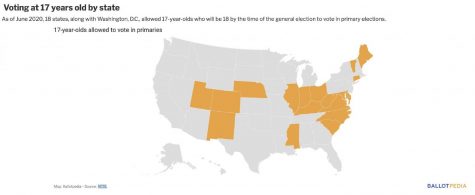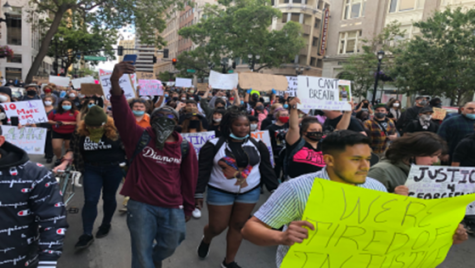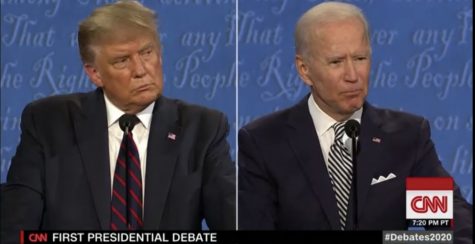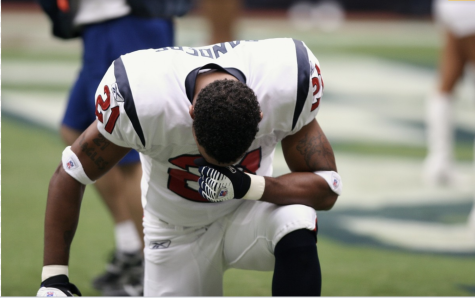CEO’s Comments Illuminate Discrimination in Workplace
October 9, 2020
Wells Fargo CEO, Charlie Scharf, cites a “limited pool of black talent” as the reason for low Black employment.
Wells Fargo is under a lot of heat, due to discriminatory comments and discriminatory practices. Nicholas Baham, Professor of Ethnic Studies at California State University, East Bay, is no stranger to this.
“Years ago when I was a first time home buyer, I was denied a small loan in order to get a house that would have accrued a lot of value by Wells Fargo,” Baham said in an interview. “I later went to a credit union and was approved. The people who oversaw my loan at the credit union were people of color.”
Wells Fargo’s Chief Executive Officer, Charlie Scharf. apologized Sep. 23 for comments he made regarding the lack of Black hires at the company.
“While it might sound like an excuse, the unfortunate reality is that there is a very limited pool of black talent to recruit from,” Scharf said in a June company memo according to Reuters.
The difference in the way that people of color are handled by corporations is evident in the types of practices and ideologies that are displayed. With the overwhelming increase of awareness of social equality in the country, it puts a spotlight on statements like the one that Scharf made and forces us to take a deeper look at the effects that this has on Black people and other people of color.
“There has been a perception that has been created by systemic racism that there are no suitable candidates for these higher up positions,” Baham said.
Wells Fargo has over 266,000 employees and serves over 70 million customers. The bank had a market capitalization of $97.4 billion as of Aug. 21.
Wells Fargo’s senior workforce has decreased in black employment in the last three years. Eight percent of the senior workforce was black in 2015 compared to only 4.1 percent in 2018. Scharf became CEO of the company in 2019. Although this was not Scharf’s doing, his comments are an indication of how those in power in the corporate culture think.
“I apologize for making an insensitive comment reflecting my own unconscious bias. There are many talented diverse individuals working at Wells Fargo and throughout the financial services industry and I never meant to imply otherwise,” Scharf said in a company memo.
Baham said Scharf’s comments reflect his understanding of the racist systemic practices and how they are beneficial to him. Scharf, like many other white males in power, doesn’t see the problem with this type of discriminatory thinking. They only are apologetic when their bottom line is affected.
“You got an apology, but are you going to get diversity, equity, and inclusion in hiring? The answer is probably no. If they do, it would probably be one of those measured, gradualist approaches,” Baham said.
Before these comments went public, Wells Fargo pledged to increase its black leadership to 12 percent according to Investment News. The authenticity of the pledge is the question if the CEO believes that there is a limited pool of black talent to choose from. Wells Fargo is no stranger to hiring bias claims.
The company settled for $7.8 million on federal allegations of hiring bias in August. The U.S. Department of Labor alleged that Wells Fargo “discriminated against 34,193 African American applicants for banking, customer sales and service, and administrative support positions,” the agency said in a statement. Wells Fargo also agreed to hire 580 affected applicants as a part of the settlement.
In 2014, Wells Fargo reached a settlement of $600,000 with the Department of Labor for discriminating against hiring 2,066 female applicants and 282 African American applicants.
As seen with Baham’s experience, there are discriminatory practices in loans and mortgages as well. The company paid a $10 million settlement in 2019 filed by the city of Philadelphia accusing them of influencing Black and Hispanic borrowers into more expensive, riskier mortgages.
The comments that Scharf made don’t just affect people of color through employment, but also in getting loans and mortgages as well. This type of thinking is practiced on a multitude of levels and is used to keep people of color in certain places geographically, career-wise and mentally. They must take responsibility for the ideologies and practices they continue to uphold.
“The way to hold them accountable is to move your money. Corporations won’t respond unless you move your money. They can respond to social pressure because they fear that what comes with social pressure is people will pull their money,” Baham said.
In order to see the change in these large corporations, they have to be held accountable. Individuals in power, like Scharf, must be held accountable. They will not care until we make them care.
Large corporations, like Wells Fargo, dismiss the foundation that keeps them going. Scharf can’t succeed alone, yet he undermines the scarcity of job demands by discriminating against minorities. Large corporations do not notice the driving force that keeps them going. They notice when you hit them where it hurts, their pockets.

















